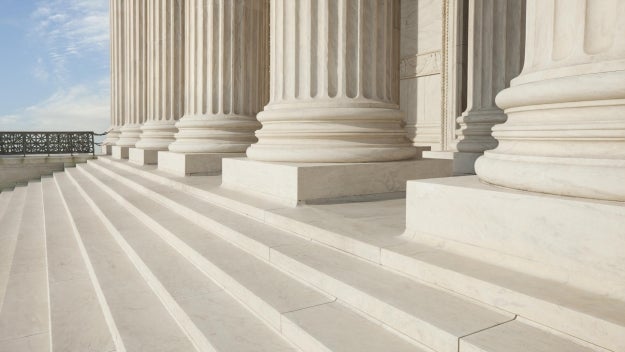

Nicola Menaldo
- Seattle
Notice
Before proceeding, please note: If you are not a current client of Perkins Coie, please do not include any information in this e-mail that you or someone else considers to be of a confidential or secret nature. Perkins Coie has no duty to keep confidential any of the information you provide. Neither the transmission nor receipt of your information is considered a request for legal advice, securing or retaining a lawyer. An attorney-client relationship with Perkins Coie or any lawyer at Perkins Coie is not established until and unless Perkins Coie agrees to such a relationship as memorialized in a separate writing.
Nicola helps clients across the country navigate the processing and use of consumer, user, and fan data.
Nicola Menaldo focuses on privacy, biometrics, marketing communications, deepfakes, right of publicity, and artificial intelligence/machine learning (AI/ML). The world's most innovative technology, sports, and retail companies engage her to represent them in complex class-action cases involving privacy and consumer data, including cases arising under such privacy laws as the Biometric Information Privacy Act (BIPA), California’s Invasion of Privacy Act (CIPA), and various other state wiretapping and consumer protection laws.
In addition to her litigation practice, Nicola has more than a decade of experience counseling clients on the complex patchwork of federal, state, and local laws governing privacy, security, and AI. These include Section 5 of the Federal Trade Commission Act; the California Consumer Privacy Act (CCPA); state consumer privacy laws; and emerging laws and regulations focused on AI, ML, and automated decision-making.
Based on this experience, Nicola also helps sports teams and entertainment companies build venues of the future, identifying and solving privacy challenges that come with integrating technology into the fan experience. She has assisted numerous sports and entertainment organizations in addressing privacy challenges, including those associated with integrating novel technologies into their venues, and led the legal team that handled tech and privacy issues for the LA Clippers’ Intuit Dome.
Prior to Perkins Coie, Nicola served as a law clerk to the Hon. Ricardo S. Martinez of the U.S. District Court for the Western District of Washington.
Areas of focus
Industries
Services
Education & Credentials
Education
- Harvard Law School, J.D., magna cum laude, 2010
- Stanford University, B.A., English, 2004
Bar and Court Admissions
-
Washington
- Supreme Court of the United States
- U.S. Court of Appeals for the Second Circuit
- U.S. Court of Appeals for the Ninth Circuit
- U.S. Court of Appeals for the Tenth Circuit
- U.S. District Court for the Western District of Washington
- U.S. District Court for the Northern District of Illinois
Related Employment
- Harvard Negotiation Institute, Cambridge, MA, Teaching Assistant, 2008 & 2009
- Google Inc., Mountain View, CA, Corporate Paralegal, 2006-2007
Clerkships
- Hon. Ricardo Martinez, U.S. District Court for the Western District of Washington
Professional Recognition
Recognized as "Top Women Attorneys in Washington," by Seattle Met Magazine, 2022
Recognized by Best Lawyers: Ones to Watch for Commercial Litigation Law, 2022-2025
Recognized as "Top Rising Young Women Attorneys in Washington," by Seattle Met Magazine, 2020
Recognized as a Rising Star by Washington Super Lawyers, 2020-2022
Impact
Professional Leadership
- International Association of Privacy Professionals, Member
- National Association of Women Lawyers, Member


